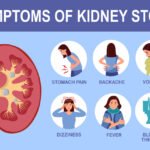Male infertility is a growing concern for many couples who struggle to conceive. While infertility is often associated with women, it’s important to recognize that men also face fertility challenges. Fortunately, there are several treatment options for male infertility that can help improve sperm quality, motility, and overall reproductive health. In this article, we will explore the most common treatments available and how they can enhance male fertility.

Lifestyle Changes to Improve Male Fertility
Before diving into medical treatments, it’s essential to understand that lifestyle changes can significantly improve male fertility. In many cases, making simple adjustments can lead to better sperm quality and overall reproductive health.
For instance, quitting smoking and reducing alcohol consumption can improve sperm count and motility. Excessive smoking and drinking can negatively affect sperm production and cause DNA fragmentation, making it more difficult for sperm to fertilize an egg. Maintaining a healthy weight is also crucial, as obesity can lead to hormonal imbalances that affect fertility. Additionally, adopting a balanced diet rich in antioxidants, vitamins, and minerals can support sperm health.
Men should also avoid excessive heat exposure, as prolonged heat can damage sperm. This includes avoiding hot tubs, saunas, or placing laptops directly on the lap. Regular exercise is beneficial, but it’s important to avoid overtraining, as excessive exercise can reduce testosterone levels and impair sperm production.
Medical Treatments for Male Infertility
If lifestyle changes aren’t enough to resolve infertility, medical treatments may be necessary. Several options are available, depending on the underlying cause of infertility.
Hormonal Therapy
Hormonal imbalances are a common cause of male infertility, and hormonal therapy can be an effective treatment. When hormone levels like testosterone, LH, or FSH are low, a doctor may prescribe medications to correct these imbalances. Clomiphene citrate, for example, is often used to stimulate the production of hormones that promote sperm production.
In cases of low testosterone, testosterone replacement therapy (TRT) may be considered. However, TRT can sometimes lower sperm count, so it’s important to consult with a doctor about its potential effects on fertility. In some cases, a gonadotropin therapy (a form of hormone injection) may be prescribed to stimulate the testes and increase sperm production.
Surgery for Varicocele
A varicocele is an enlargement of the veins in the scrotum that can affect sperm production. It is one of the most common causes of male infertility. In many cases, surgery can correct this issue by improving blood flow to the testes and restoring normal sperm production. Varicocele repair is a straightforward procedure, and many men experience improved sperm count and quality after surgery.
Treatment for Blockages
Some men experience blockages in the reproductive tract that prevent sperm from being ejaculated properly. These blockages can be caused by infections, injuries, or congenital conditions. Surgery can often correct these blockages, allowing sperm to flow normally.
In cases where surgery is not possible, assisted reproductive technologies (ART) like sperm retrieval can be used. Sperm can be directly extracted from the testes and used for in vitro fertilization (IVF) or intracytoplasmic sperm injection (ICSI). These procedures help bypass blockages and allow for successful fertilization.
Assisted Reproductive Technologies (ART)
When medical treatments alone are insufficient, assisted reproductive technologies (ART) can offer effective solutions. ART involves techniques that help couples conceive by overcoming fertility issues.
In Vitro Fertilization (IVF)
In vitro fertilization (IVF) is one of the most well-known ART treatments. During IVF, sperm is collected and combined with an egg in a laboratory dish. Once fertilization occurs, the embryo is transferred into the woman’s uterus. IVF can be a viable option for men with low sperm count or motility, as sperm can be directly injected into the egg using the intracytoplasmic sperm injection (ICSI) technique.
Sperm Donor
In cases of severe infertility, where a man has no viable sperm or is unable to produce sperm, using a sperm donor may be the most effective solution. Sperm donors are carefully screened for health and genetic conditions, ensuring that only high-quality sperm is used in the fertility process. This option is typically considered when other treatments have failed or are not viable.
Psychological Support and Counseling
Infertility can be an emotionally challenging experience for both partners. Seeking psychological support or counseling can help individuals cope with the emotional toll of infertility. Many fertility clinics offer counseling services to support men and couples through the treatment process. This can be especially helpful when facing difficult decisions or dealing with the stress of ongoing fertility treatments.
Conclusion
Male infertility can be a complex issue, but there are numerous treatment options for male infertility that can improve the chances of conception. From lifestyle changes to medical therapies, surgery, and assisted reproductive technologies, there are solutions available to address various causes of infertility. If you or your partner are struggling with infertility, consult with a healthcare professional to explore the best treatment plan for your specific needs. With the right approach, many men are able to overcome infertility and achieve their goal of fatherhood.









